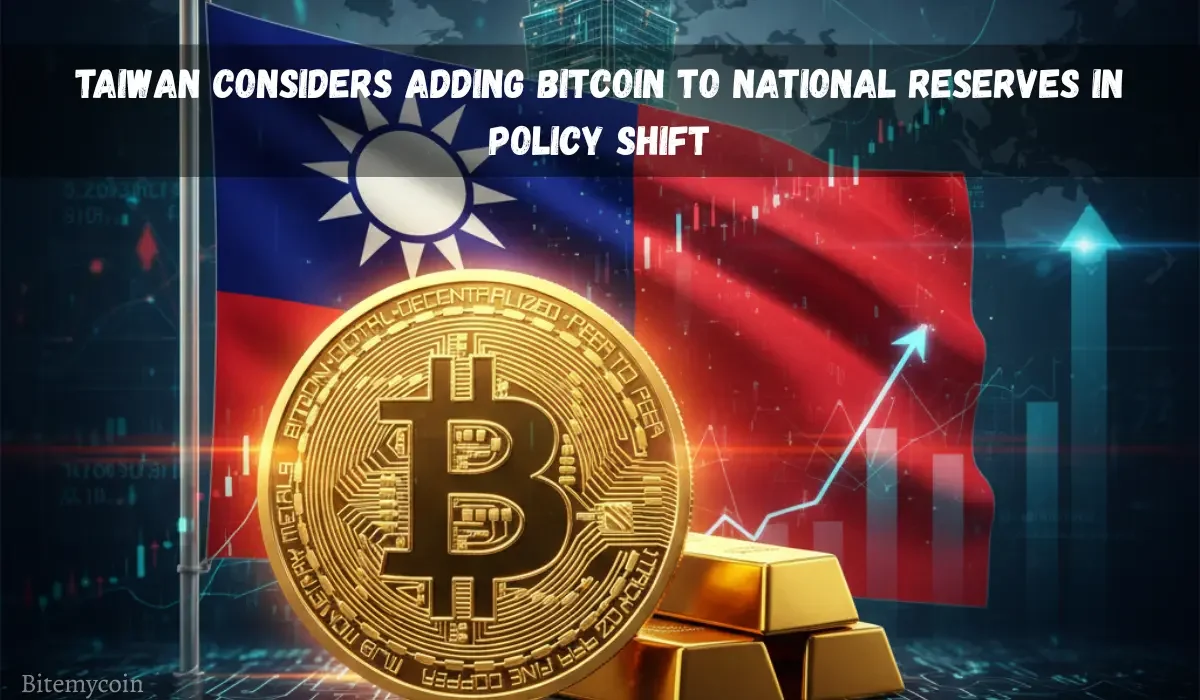Taiwan Considers Adding Bitcoin to National Reserves in Policy Shift

Key Takeaways
- Taiwan is making a plan for the strategic diversification of its national reserve.
- Bitcoin is the asset chosen for this strategic asset diversification.
- The plan includes reducing reliance on the US dollar.
- This could safeguard Taiwan against geopolitical issues and international threats.
Backed by a senior legislator, Bitcoin could become a national reserve in Taiwan. Taiwan is moving into Bitcoin territory as the country is planning on reducing its reliance on the US dollar for its national reserve.
According to legislator Dr. Ju-Chun Ko, Bitcoin, which is seized from anti-national and illegal operations, could be used as a reserve rather than auctioning them out. This opinion from Ko came forth during a national finance conference on May 9th, 2025.
It is not the first time that a nation has had plans for Bitcoin to be part of the strategic reserve. In March of 2025, US President Donald Trump signed an executive order. This order dictated that a national Bitcoin Strategic Reserve be created from Bitcoin forfeited by the government.
Bitcoin as a Strategic Reserve
According to the legislator, a small portion of the country’s capital should be allocated for keeping Bitcoin as a reserve. According to Ko, this could serve as a hedge against geopolitical uncertainties and global economic risks.
The decentralized nature of Bitcoin, fixed supply, makes it an ideal asset for a national reserve, according to the legislator. In addition to this, Ko pointed out that many countries were already using Bitcoin as a reserve asset or were actively planning to make Bitcoin a strategic reserve.
Exclusively for Taiwan, Ko pointed out that Taiwan is a country that is largely reliant on exports. For such a country, the associated volatility could be a risky proposition, especially given the recent threats of increased tariffs by global superpowers like the United States.
In such a context, having a strong national reserve to replace the US dollar becomes important. The legislator added to this the possibility of Bitcoin as an asset that cannot be seized during geopolitical tensions. Assets like Bitcoin can serve as an uncorrelated asset for nations, especially during times of conflict or global political unrest.
Getting Rid of Dollar Dependence
The legislator also weighed in on how Taiwan has limited diverse economic strategies that could safeguard it during times of crisis. Ko was particularly vocal about Taiwan’s overreliance on the US dollar.
According to Ko, there were several factors that contributed towards arriving at this point, where Bitcoin was chosen as the base asset for a national reserve. Global inflation, rising geopolitical tension, and the volatility of the New Taiwan Dollar are all threats to Taiwan’s economy, and Bitcoin could be a viable solution to this risk, according to Ko.
Dr. Ko clarifies that Bitcoin will not immediately replace the existing national assets; rather, it will complement the national assets, helping Taiwan stay afloat during volatile conditions. Currently, Taiwan has an approximate of 423 metric tons of gold, 577 billion US dollars in foreign exchange reserves, with 92% of these being invested in US treasury bonds.
Conclusion
In conclusion, Taiwan’s potential move to incorporate Bitcoin into its national reserves marks a significant shift in the nation’s financial and geopolitical strategy. By making use of Bitcoin as a complementary strategic reserve, Taiwan aims to slowly reduce its overdependence on US dollar reserves.
This can significantly help strengthen the nation’s resilience against geopolitical imbalance and volatile situations. This opinion reflects a global interest that has been found recently. However, making a volatile asset like Bitcoin a strategic asset carries significant risk. The option then is to weigh the advantages against the risks and arrive at an amicable solution.
Also Read: XRP Price Prediction Today: 4% Rebound Signals Possible Bullish Breakout
Crypto & Blockchain Expert
